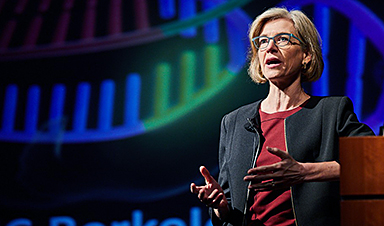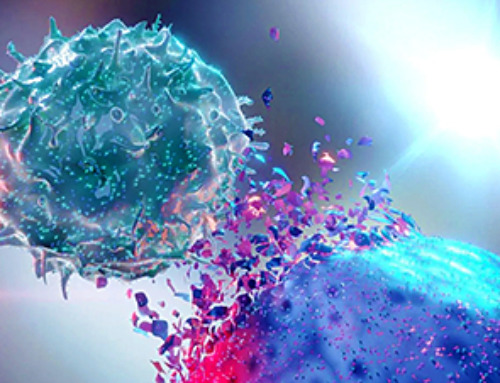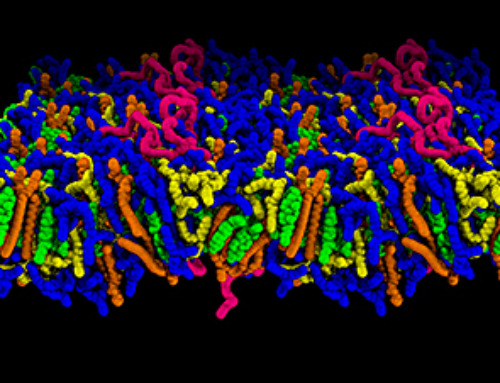Coronavirus tests performed in labs are the gold standard for accuracy and antigen tests are a fast and inexpensive alternative.
But backers of a third type of test, developed by a Nobel Prize winner using cutting-edge CRISPR technology, say it has the potential to be all three: rapid, accurate and inexpensive.
Although these gene-editing technology tests are still being developed and won't be ready in the United States this year as the weather cools and demand surges, research groups recently published scientific papers describing them as an appealing alternative as testing shortages persist in the COVID-19 pandemic.
Dr. Jennifer Doudna, a University of California, Berkeley researcher whose pioneering work in CRISPR earned a share of this year's Nobel Prize in chemistry, said the test can be done quickly and doesn't require a lab.
"We have a ways to go before CRISPR-based diagnostics reach widespread use, but I believe we'll see an impact during the current pandemic," Doudna said. "Because it is simple to adjust these tests to detect other targets, the platform we're developing now is laying the groundwork to deploy CRISPR for rapid diagnosis during future outbreaks."
CRISPR, or clustered regularly interspaced short palindromic repeats, is a gene-editing technology studied for a wide range of uses from cancer and sickle cell disease treatments to improved food production.
In 2016, Doudna's lab developed a way to detect RNA using the technology. Her lab collaborated with Dr. Melanie Ott of San Francisco-based Gladstone Institutes to develop an HIV test, but when the pandemic hit, the researchers focused on developing a coronavirus test.
The test recognizes a sequence of RNA in SARS-CoV-2, the coronavirus that causes COVID-19
In an Oct. 12 publication, researchers reported the test yielded results in five minutes and correctly identified five samples from patients with coronavirus. When used with a mobile phone to detect signals generated by the test, the technology could provide a fast, low-cost test outside a laboratory, researchers said in the paper, which was not peer reviewed.
Massachusetts Institute of Technology scientists also are honing a CRISPR-based test that can be used outside a lab. In a New England Journal of Medicine letter published last month, researchers said the test was evaluated at a University of Washington lab using 202 samples with coronavirus and 200 without. The test correctly identified 93.1% of positive samples. The test also had 98.5% specificity, which means it rarely reported false positives.
Feluda, a paper-based CRISPR test named after a fictional India detective, has been cleared by that nation's drug regulators for commercial launch. But it's unclear how the Indian conglomerate Tata Group plans to deploy the test in India, which trails only the United States with nearly 7.7 million cases, according to data from Johns Hopkins University.
Image Credit: Ernesto Del Aguila, NHGRI
Post by Amanda Scott, NA CEO. Follow her on twitter @tantriclens
Thanks to Heinz V. Hoenen. Follow him on twitter: @HeinzVHoenen
News
Scientists Finally Solve a 30-Year-Old Cancer Mystery Hidden in Rye Pollen
Nearly 30 years after rye pollen molecules were shown to slow tumor growth in animals, scientists have finally determined their exact three-dimensional structures. Nearly 30 years ago, researchers noticed something surprising in rye pollen: [...]
NanoMedical Brain/Cloud Interface – Explorations and Implications. A new book from Frank Boehm
New book from Frank Boehm, NanoappsMedical Inc Founder: This book explores the future hypothetical possibility that the cerebral cortex of the human brain might be seamlessly, safely, and securely connected with the Cloud via [...]
How lipid nanoparticles carrying vaccines release their cargo
A study from FAU has shown that lipid nanoparticles restructure their membrane significantly after being absorbed into a cell and ending up in an acidic environment. Vaccines and other medicines are often packed in [...]
New book from NanoappsMedical Inc – Molecular Manufacturing: The Future of Nanomedicine
This book explores the revolutionary potential of atomically precise manufacturing technologies to transform global healthcare, as well as practically every other sector across society. This forward-thinking volume examines how envisaged Factory@Home systems might enable the cost-effective [...]
A Virus Designed in the Lab Could Help Defeat Antibiotic Resistance
Scientists can now design bacteria-killing viruses from DNA, opening a faster path to fighting superbugs. Bacteriophages have been used as treatments for bacterial infections for more than a century. Interest in these viruses is rising [...]
Sleep Deprivation Triggers a Strange Brain Cleanup
When you don’t sleep enough, your brain may clean itself at the exact moment you need it to think. Most people recognize the sensation. After a night of inadequate sleep, staying focused becomes harder [...]
Lab-grown corticospinal neurons offer new models for ALS and spinal injuries
Researchers have developed a way to grow a highly specialized subset of brain nerve cells that are involved in motor neuron disease and damaged in spinal injuries. Their study, published today in eLife as the final [...]
Urgent warning over deadly ‘brain swelling’ virus amid fears it could spread globally
Airports across Asia have been put on high alert after India confirmed two cases of the deadly Nipah virus in the state of West Bengal over the past month. Thailand, Nepal and Vietnam are among the [...]
This Vaccine Stops Bird Flu Before It Reaches the Lungs
A new nasal spray vaccine could stop bird flu at the door — blocking infection, reducing spread, and helping head off the next pandemic. Since first appearing in the United States in 2014, H5N1 [...]
These two viruses may become the next public health threats, scientists say
Two emerging pathogens with animal origins—influenza D virus and canine coronavirus—have so far been quietly flying under the radar, but researchers warn conditions are ripe for the viruses to spread more widely among humans. [...]
COVID-19 viral fragments shown to target and kill specific immune cells
COVID-19 viral fragments shown to target and kill specific immune cells in UCLA-led study Clues about extreme cases and omicron’s effects come from a cross-disciplinary international research team New research shows that after the [...]
Smaller Than a Grain of Salt: Engineers Create the World’s Tiniest Wireless Brain Implant
A salt-grain-sized neural implant can record and transmit brain activity wirelessly for extended periods. Researchers at Cornell University, working with collaborators, have created an extremely small neural implant that can sit on a grain of [...]
Scientists Develop a New Way To See Inside the Human Body Using 3D Color Imaging
A newly developed imaging method blends ultrasound and photoacoustics to capture both tissue structure and blood-vessel function in 3D. By blending two powerful imaging methods, researchers from Caltech and USC have developed a new way to [...]
Brain waves could help paralyzed patients move again
People with spinal cord injuries often lose the ability to move their arms or legs. In many cases, the nerves in the limbs remain healthy, and the brain continues to function normally. The loss of [...]
Scientists Discover a New “Cleanup Hub” Inside the Human Brain
A newly identified lymphatic drainage pathway along the middle meningeal artery reveals how the human brain clears waste. How does the brain clear away waste? This task is handled by the brain’s lymphatic drainage [...]
New Drug Slashes Dangerous Blood Fats by Nearly 40% in First Human Trial
Scientists have found a way to fine-tune a central fat-control pathway in the liver, reducing harmful blood triglycerides while preserving beneficial cholesterol functions. When we eat, the body turns surplus calories into molecules called [...]





















